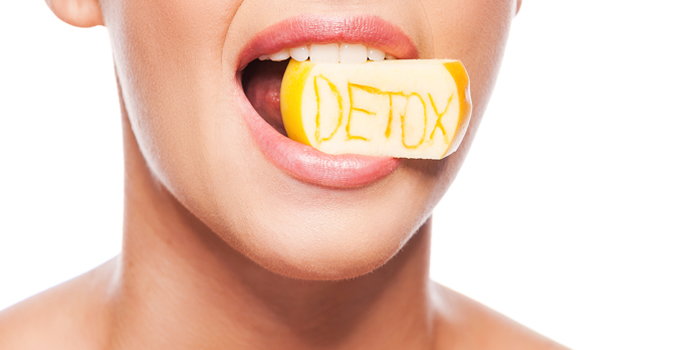Detoxes have been around for a while now, but they started to catch on around 2013. Today, there are literally hundreds of different cleanses and detoxes out there.
Whether it’s the 10-Day Detox Diet, the Liver-Cleansing Diet, the Raw Food Detox Diet, or the Master Cleanse, most detoxes and cleanses promise the same thing: to remove toxins from your body, thereby making you healthier. While some detoxes target specific organs, such as the liver or the colon, the goal is generally to make you feel better.
The typical detox involves either restricting your diet to certain things (e.g. smoothies, juice, raw food, soup, etc.) or avoiding certain types of foods (e.g. wheat, fat, sugar, etc.). Detox explanations don’t often identify which toxins the diet eliminates, nor how it eliminates them. “Toxins” seems to refer generally to any substance that might be harmful to health.
But the idea that you can rid your body of unhealthy substances by “detoxing” is a myth. In fact, in an otherwise healthy person, detoxing is taken care of by the liver, and to a lesser extent the kidneys, the skin, and the lungs. If these organs simply allowed toxins to build up in our systems, we likely wouldn’t survive very long.
Sticking to juice or eating raw for a few days doesn’t make these organs do their jobs better. So what does it do?
Let’s say you decide to drink nothing but green smoothies for a week. Sure, smoothies might be good for you, but that doesn’t mean you should eat them for every single meal.
After a week, you might lose weight, but that has little to do with detoxing and more to do with a number of calories you’re consuming. When you restrict calories, you start to tap into your glycogen stores.
Glycogen is a form of glucose energy that your body stores to use when it needs it. It’s kept in the muscles with water. A low-calorie diet can lead to the depletion of glycogen stores and any accompanying water weight. So, after a few days of detoxing, you might lose a few pounds of water weight, which you’ll most likely gain back once you’re back on your regular diet.
The slightly scarier part of cleansing is that you might be missing out on important nutrients and vitamins, such as fat, fiber, protein, B12, or iron. Some people who’ve tried juice cleanses describe symptoms similar to stomach flu, which can be caused by a lack of fiber. After a few days on a cleanse, low caloric intake can also lead to exhaustion and dizziness.
Of course, detoxes and cleanses aren’t always harmful. But there’s no real evidence that they work. If anything, a detox is just an extreme diet dressed up as something that’s good for you.
[Image via Shutterstock]



